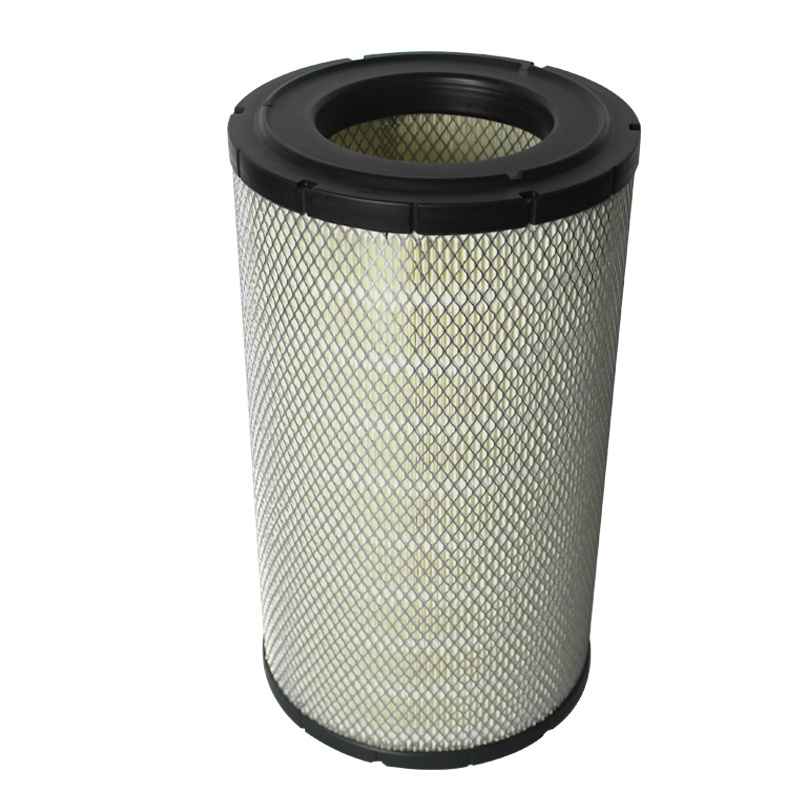Understanding the Role of Air Filters in Air Conditioners: Key Insights for Optimal Performance
Jul 24,2025
Air filters play a crucial role in the functionality of air conditioners, both in vehicles and buildings. When it comes to air conditioning systems, the primary purpose of the air filter is to trap dust, pollen, and other airborne particles, ensuring that the air circulating through the system is clean and healthy. A clean air filter not only enhances air quality but also contributes to the overal

Air filters play a crucial role in the functionality of air conditioners, both in vehicles and buildings. When it comes to air conditioning systems, the primary purpose of the air filter is to trap dust, pollen, and other airborne particles, ensuring that the air circulating through the system is clean and healthy. A clean air filter not only enhances air quality but also contributes to the overall efficiency of the air conditioning system.
One of the most significant benefits of maintaining a clean air filter in your air conditioner is improved indoor air quality. In vehicles, for example, the air filter helps eliminate allergens and pollutants, providing a healthier environment for passengers. This is particularly important for individuals with allergies or respiratory issues, as cleaner air can alleviate symptoms and improve overall comfort during travel.
In addition to health benefits, air filters also affect the energy efficiency of air conditioning units. When an air filter becomes clogged with dirt and debris, it restricts airflow. This restriction forces the air conditioning system to work harder to maintain the desired temperature, leading to increased energy consumption. By regularly replacing or cleaning the air filter, you can ensure that your air conditioner operates at peak efficiency, potentially saving you money on energy bills.
The lifespan of air filters can vary depending on several factors, including usage and environmental conditions. For instance, if you frequently drive in dusty areas or have pets, you may need to check and replace the air filter more often. It’s recommended to inspect the air filter regularly and replace it at least every 12,000 to 15,000 miles, or as specified in your vehicle's owner manual.
Another aspect to consider is the type of air filter being used. There are various types of air filters available, including standard paper filters, high-efficiency particulate air (HEPA) filters, and activated carbon filters. Each type has its advantages and can cater to different needs, such as improved filtration for allergens or odors. While choosing an air filter, it’s essential to consider your specific requirements and preferences.
In summary, the air filter on an air conditioner is vital for ensuring clean air, promoting energy efficiency, and enhancing the longevity of the system. By understanding its importance and keeping it well-maintained, you can enjoy a more comfortable and healthier environment, whether in your car or at home. Regularly checking and replacing the air filter is a simple yet effective way to ensure your air conditioning system operates efficiently and effectively.
One of the most significant benefits of maintaining a clean air filter in your air conditioner is improved indoor air quality. In vehicles, for example, the air filter helps eliminate allergens and pollutants, providing a healthier environment for passengers. This is particularly important for individuals with allergies or respiratory issues, as cleaner air can alleviate symptoms and improve overall comfort during travel.
In addition to health benefits, air filters also affect the energy efficiency of air conditioning units. When an air filter becomes clogged with dirt and debris, it restricts airflow. This restriction forces the air conditioning system to work harder to maintain the desired temperature, leading to increased energy consumption. By regularly replacing or cleaning the air filter, you can ensure that your air conditioner operates at peak efficiency, potentially saving you money on energy bills.
The lifespan of air filters can vary depending on several factors, including usage and environmental conditions. For instance, if you frequently drive in dusty areas or have pets, you may need to check and replace the air filter more often. It’s recommended to inspect the air filter regularly and replace it at least every 12,000 to 15,000 miles, or as specified in your vehicle's owner manual.
Another aspect to consider is the type of air filter being used. There are various types of air filters available, including standard paper filters, high-efficiency particulate air (HEPA) filters, and activated carbon filters. Each type has its advantages and can cater to different needs, such as improved filtration for allergens or odors. While choosing an air filter, it’s essential to consider your specific requirements and preferences.
In summary, the air filter on an air conditioner is vital for ensuring clean air, promoting energy efficiency, and enhancing the longevity of the system. By understanding its importance and keeping it well-maintained, you can enjoy a more comfortable and healthier environment, whether in your car or at home. Regularly checking and replacing the air filter is a simple yet effective way to ensure your air conditioning system operates efficiently and effectively.
TAG:
PREVIOUS:
Contact Us







